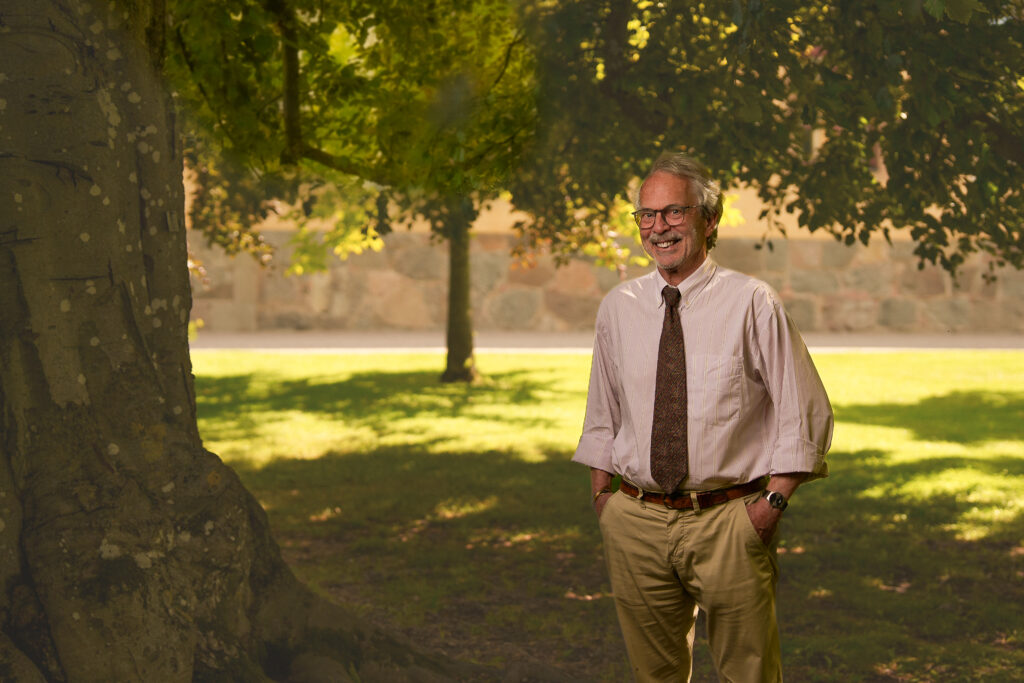PhD Henning Melber (Nordic Africa Institute, Uppsala) took part in the discussion “Vergangenheitsbewältigung as a Global Challenge” at the seminar Narratives of Power: Memory Politics in Russia, Germany, and the Contemporary World, organized by Historians without Borders in cooperation with ICD Academy for Cultural Diplomacy on October 28th 2025. A shortened version of his presentation is published.
The German Kaiserreich was at the beginning of the 20th century the fourth biggest colonial power. Since 1884 it declared South West Africa, Togo, Cameroon, East Africa and some South Sea Islands (including Samoa) as its property, to which it added the Chinese lease territory Tsingtao. Hundreds of thousands colonised lost their lives through colonial violence. The first genocide of the 20th century took place in South West Africa, where Apartheid became a German invention.
Ending with World War 1, colonialism was widely degraded to a mere footnote of German history. In West Germany it was mainly perceived through uncritical lenses. In East Germany the colonial archives and the support of the anti-colonial struggle fostered a critical historiography. As different as these engagements were, they had no impact on a memory culture among the wider public in both countries.
This changed since reunification. Civil society made inroads in the public discourse. Post-colonial initiatives, Afro-Germans and scholars engaged with the brutal forms of German colonialism and entered mainstream debates, if only with limited impact. But it opened new frontiers.
In 2015 the German government admitted that the warfare in South West Africa was genocide from today’s perspective. German Namibian government negotiations resulted in a controversial Joint Declaration not yet adopted. This contributed to increased debates how to come to terms with the past in the present.
The so-called traffic light coalition (Ampelkoalition) of the Social Democrats (SPD), the Greens (Bündnis 90/Die Grünen) and the Liberal Party (FDP) declared in its coalition agreement of December 2021 the reconciliation with Namibia is an indispensable task of historic and moral responsibility. It promised to tackle as part of its cultural politics colonial continuities. But except an intensification of provenience research and the restitution of some looted artefacts and human remains little happened.
In response to an interpellation, a self-critical diagnosis of 31 October 2024 concedes that Germany’s colonial past has been for decades a non-theme in politics and society and was wrongly so pictured as relatively harmless because of its short duration. That this changed in recent years was attributed to civil society. It admits that the treatment of Germany’s colonial past remains a task still at the beginning.
The state minister for Culture and Media in the Office of the Chancellor tried in 2024 to add to the framework concept of memory culture (Rahmenkonzept Erinnerungskultur) colonialism to the pillars of the Nazi-regime and the GDR. But it also suggested a fourth pillar on migration. Since the official memory culture has an exclusive focus on state-responsible injustices, the proposal failed. A final effort to rescue the colonial dimension by deleting migration came only when the coalition had collapsed.
The new discourses provoked colonial-apologetic revisionism rejecting post-colonial efforts as a “guilt complex”. A draft resolution submitted by the right-wing Alternative für Deutschland (AfD) to Parliament in December 2019 argued that German colonialism contributed to the liberation of the African continent from archaic structures. It called on the government to develop a commemorative culture that acknowledges the beneficial aspects of the German colonial era; to promote such perspectives in school curricula; to oppose demands for reparations; and to keep street names with colonial reminiscenses.
It bemoaned a paradigm shift since German unification and accused critical colonial-historical studies being indoctrinated by East German ideology. It accuses the ‘left spectre’ of imposing its ‘normative interpretation of the past’ as the dominant view and of victimising those sympathetic to the idea of a colonial civilising mission.
The Konrad Adenauer Foundation has since in its Public History Portal Geschichtsbewußt introduced a thematic focus headed ‘Postcolonialism: attack on the West’ (Postkolonialismus: Angriff auf den Westen). Postcolonialism is accused of discrediting the legacy of European enlightenment as Western cultural imperialism. It warns that postcolonial criticism of an enlightened universalism and the West is a threat to social cohesion. This is indicative for the new cultural policy presented in the election campaign of early 2025. Just like the AfD, the CDU and CSU reanimated the term lead culture (Leitkultur).
The current government of CDU/CSU and SPD entered in May 2025 a coalition agreement. It deals with colonialism in three sentences without mentioning Namibia. It declares to keep an eye on creating a dignified place of memory for colonialism, but there is no mention of this under memorials or elsewhere. Such initiative would be a task for Wolfram Weimer, appointed as State Secretary for Culture and Media in the office of the Chancellor.
In a book declared to be a conservative manifesto, he advocates a new positioning of old values and affirmatively refers to Oswald Spengler’s Der Untergang des Abendlandes (The Decline of the West or The Downfall of the Occident) of 1918. For him multiculturalism necessitates a reminder that good old things still exist. He rebukes the ‘do-gooder-patronisers’ (Gutmenschen-Bevormunder) and ‘moral know-it-all’ (moralische Beserwisser) for a loss of substance in a funfair society (Jahrmarktgesellschaft).
In an article after his appointment, Weimer opinionated that cultural wars are rarely about culture, but over the power of definition, ideas and perspectives. In September 2025, Weimer presented his new state memory concept, in which colonialism is not mentioned. Such selectivity by omission is tantamount to memory failure.
Recording:
Watch the recording of Henning Melber’s full opening statement at the seminar Narratives of Power: Memory Politics in Russia, Germany, and the Contemporary World.
Watch all recordings of the seminar:

